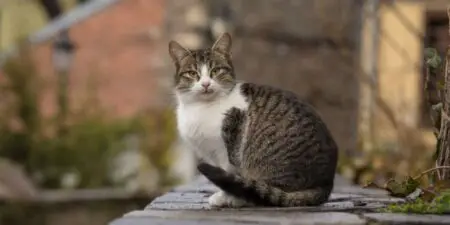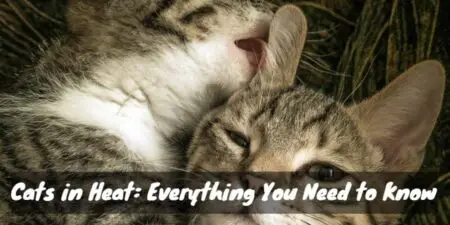What factors contribute to a cat’s lifespan? A cat’s longevity hinges on an array of variables, such as its living environment (indoors or outdoors), spaying or neutering, gender, and the regularity of veterinary visits.
Interestingly, female cats usually outlive males by a small margin. Additionally, indoor cats have a considerably longer lifespan compared to cats that spend their time outdoors. Seeking routine veterinary care is also essential in maintaining a cat’s overall health and longevity.
How long do cats live? Outdoor cats survive for an average of only 2 to 5 years. Although many people feel that not allowing a cat to roam outside is cruel, deciding whether a cat will be an indoor or outdoor cat is one of the most important decisions a cat owner will make. The longest life recorded for a domestic cat was twenty-eight years, but most indoor cats live for between twelve and sixteen years.
Indoor or Outdoor, Long Life or Short?
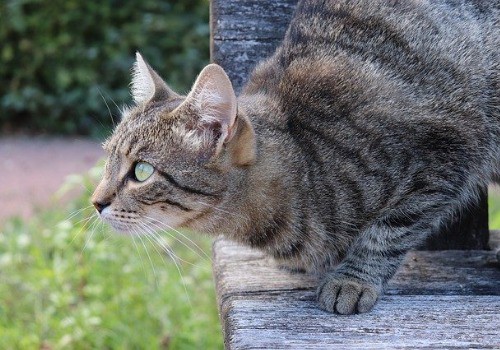
How does an outdoor lifestyle impact a cat’s life? Cats allowed to roam outdoors often face shorter lifespans and bring home unwelcome surprises, or even vanish. Some cat owners have no issue with outdoor cats, while others change their perspective after witnessing these cats’ challenges.
Outdoor cats must navigate traffic, fend off predators, and risk exposure to various diseases. Some of these, such as Feline Immunodeficiency Virus (FIV) and Feline Leukemia, can be fatal. Although vaccinations can help, outdoor cats may still contract and spread feline flu or respiratory issues.
The life of an outdoor cat is also affected by its reproductive instincts. Male cats, regardless of being neutered, engage in dangerous fights. Unspayed female cats bear litter after litter, sometimes before they’ve fully matured.
Catfights can lead to severe injuries, requiring immediate veterinary care. The harsh reality is that an outdoor cat’s 2 to 5-year lifespan is often marked by fierce competition for mating and territory, rather than enjoyable adventures.
In contrast, indoor cats typically live 12 to 16 years. They bask in sunlit spots, lounge on windowsills, and enjoy human companionship. Indoor cats have periods of playfulness followed by restorative naps. Neutered indoor cats don’t seek attention from other cats or produce numerous litters.
When deciding whether to keep your cat indoors or allow them to roam, consider whether your own feelings about the outdoors influence your decision. A human’s indoor and outdoor experiences differ significantly from those of a cat.
[amazon bestseller=”cats wet food”]
To Spay or Not to Spay?

Do neutered cats enjoy longer lives? Cats that are neutered tend to live longer than those that aren’t. Neutered male cats no longer feel the need to roam or fight, while spayed female cats avoid the loud and disruptive behavior associated with mating. These changes contribute to a longer life, especially for indoor cats.
Neutering offers many benefits for male cats, some of which may surprise pet owners. Unneutered males often spray to mark their territory, including indoors. They also roam and fight, behaviors that neutered cats avoid, making life easier for the cat and the owner.
Although neutered cats may gain some weight, a high-quality diet can help control this issue. Neutered male cats often have a softer body shape than their unneutered counterparts. Additionally, neutering prevents the growth of feral cat populations and reduces the strain on parent cats.
Opting to neuter your cat is a responsible and healthy choice. It’s yet another reason to keep your cats indoors, where neutered cats can live full, pleasant lives.
The Older Cat
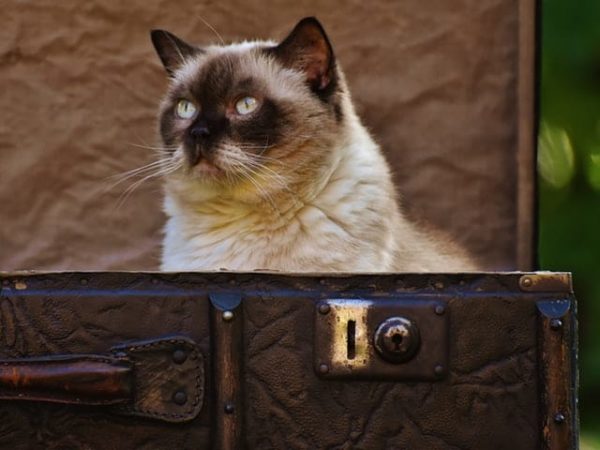
As cats reach around 10 years of age, they often display signs of aging. They may become less active or exhibit symptoms of arthritis and joint pain. Witnessing these changes can be distressing for cat owners.
Coping with the end of a cat’s life is a profoundly personal experience. After spending a decade or more together, it’s natural for cats and their owners to develop strong attachments, making it difficult to let go.
An aging cat will communicate that it’s nearing the end of its life in various ways. Loss of appetite and reduced water intake may indicate too much energy required to eat and drink. Rapid dehydration can follow, necessitating a visit to the vet. Grooming may also decrease, leaving the cat looking gaunt and disheveled, sometimes accompanied by an odor.
When close to death, some cats will hide, while others become clingy, staying close to their owners. You may also notice your cat’s body temperature dropping, particularly in the paws and ears.
The idea of losing a cherished pet is difficult to accept. Although it’s natural to want to prolong your cat’s life, as they become more frail and prone to illness and pain, it’s crucial to discuss end-of-life options with your veterinarian.
Medication may extend an older cat’s life, but ultimately, it comes down to quality of life. Ask yourself if your cat is truly enjoying its remaining days or if you’re struggling to let go. Each person and cat will face this time differently. As your cat’s end approaches, consult with your vet and trust your instincts.
How to Give Your Cat a Long, Healthy Life
No pet lives forever, but you can significantly impact the quality and length of your cat’s life by taking some simple steps and following through on routine maintenance. Here are a few of the best ways to give your cat a long life:
Keep Vet Visits Regular
Make sure you take your cat to the vet for vaccinations and neutering, and keep up a regular schedule, even if only once or twice per year.
Don’t Overfeed
Free feeding can result in overfeeding. Follow the directions on the food the vet recommends, and go easy on treats. Obese cats live shorter lives.
Keep the Indoor Environment Interesting

Cats can be perfectly happy indoors and live up to five times longer than outdoor cats, but they do appreciate toys, cat towers, and soft perches by windows, and warm beds to rest on.
Change the Litter Box Often
Litter boxes should be changed at least once per week and scooped daily. A clean litter box protects cats from urinary tract infections and protects furniture and carpets from outside-the-box urination. Sometimes cats need a change in food as they age to prevent urinary infections, so have your cat checked the minute he or she shows signs of litter box trouble.
[amazon bestseller=”cat automatic litterbox”]
Brush and Groom
Cats keep themselves clean, but as a cat age, it often appreciates a little help. Regular brushing also helps prevent hairballs, and some cats simply adore being brushed.
Pay Attention
When your cat is ill or needs help, it will let you know by crying, hiding, avoiding food and water, or urinating outside its box. Call the vet and get the cat checked out when these signs appear. Often the solution is a simple one.
Conclusion
Owning a pet comes with immense responsibility. Many people assume cats are low-maintenance with their so-called “nine lives,” but they are intelligent and sensitive creatures that thrive when treated well.
Cats receiving little care and left outdoors most of the day often face short lives. They can fall victim to predators like coyotes, be hit by cars, or suffer severe injuries in fights with feral males. Outdoor cats also hunt mice and birds, potentially contracting diseases from their prey.
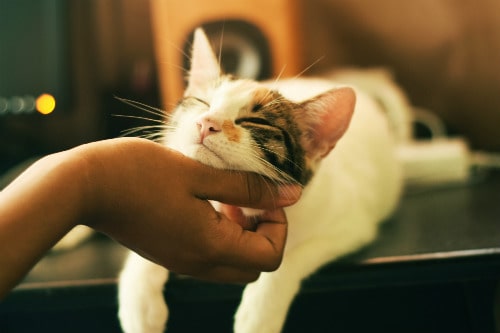
On the other hand, indoor cats that bond with their owners can live well past twenty years, although the average is twelve to sixteen. Contrary to popular belief, cats are not antisocial. They require their owners’ companionship and develop unique, subtle ways of expressing affection. A cat can live a perfectly happy life without ever stepping outside.
Before bringing a cat or kitten home, understanding these differences and making an informed choice will determine whether your pet enjoys a short, intense life or a leisurely, long one.
How Long Do Cats Live? (Video)
"In ancient times cats were worshipped as gods; they have not forgotten this."
-- Terry Pratchett

